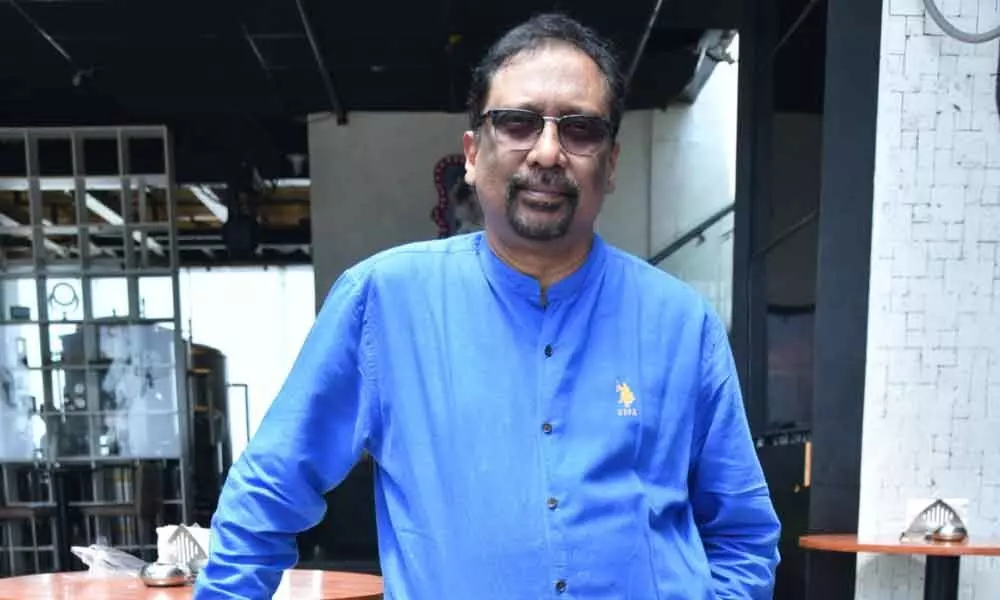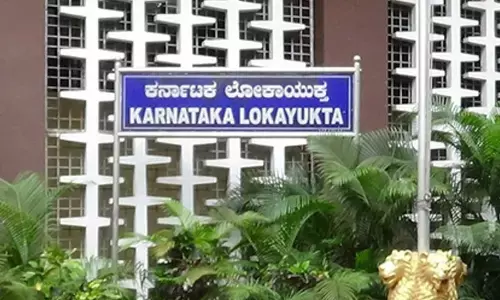Journey through time: Sai Papineni
Sai Papineni, a sales promotion and marketing communication professional, has turned writer with a vengeance post-retirement. After a few books in Telugu, he now released a book in English titled ‘Amaravati, a collection of stories about the once-great civilisation of Andhra
Sai Papineni was born in Ongole, a small town then in Andhra Pradesh. His father was a civil servant and his mother was a homemaker. He informs that it was a big family; and all his uncles and aunts were civil servants, lawyers, judges and teachers for three generations. "All kinds of books were at home and reading became the norm. It wasn't an active indulgence, sports and outdoors interested me, even today they do, but books have a way of getting inside you."
Books fascinated him a lot to become a writer. "It was on my 50th birthday, I quit working, and that's when I thought of writing, rather late in life. There is so much to see in India, but little has been written in a popular genre. China, Japan, Europe, the States of the USA, and even Africa has more books on history than India. It is no wonder, the common Indians are so confused about their past. Myths and legends from the religious texts are being dished out as actual history. There has hardly been any book on the history of Telugu people for the last six or seven decades. I felt compelled."
His journey as a writer started with a Telugu book. "It was a paper written by Upinder Singh, a professor at Delhi University, and the daughter of our former PM, Dr Manmohan Singh, that had caught my attention. It's about the way the stupa at Amaravati was dismembered by the colonial masters. So, I began writing a novel elaborating on her paper, adding flesh and blood to the players, and at points travelling in time to tell the stories of antiquity. I called it 'Song of the Black River', a lament of the river about the once glorious past of its people. After writing a few pages, it occurred to me, why not in Telugu, my mother tongue, to get closer to the ethos and idiom of my audiences. So, I retraced and wrote it in Telugu and called it 'Andhranagari'."
"After a year, I wrote 'Andhrapatham', a series of short stories, to present the seminal episodes of the past from 2,000 BCE to a couple of years before independence," Sai shares.
The book was a collection of images from the past, an imaginary journey through time, it spans over two millennia and traces the civilisation of the Krishna valley that saw extraordinary highs and abysmal lows. "Andhra Pradesh was divided, and the newly formed State is building from scratch its new capital and called it Amaravati. Except for the name, everything that has been planned has no connection to its past. Every city of consequence has a long past and a narrative. 'Amaravati' today is being built on a soil straddling both banks of the Krishna that has a long and glorious past. The stories need to be told, and so I wrote this book - 'Amaravati Through Ages: As Told by the Waves of Krishna'.
The 16 stories in the book try to tell you the stories of the places in and around the new capital region. About writing this book in English, he says, "A large portion of my friends can't read Telugu and this trend cannot be reversed. Amaravati is a city of the future and if I must address its denizens, the language has to be something they are comfortable with. To sensitise the readers to an idea or a word from the past without hurting the prevalent sensibilities is a challenge every historical fiction writer has to face."
About his future projects, he shares, "There is a book in the commissioning stage, which cannot be divulged now. I am writing one in Telugu, a biographical novel, historical of course. And, a few… at various stages of cooking."











